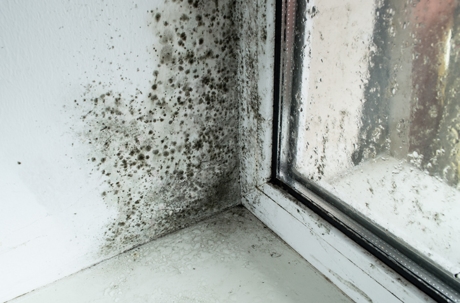Mold is a common yet often underestimated problem that can wreak havoc on your property and health. While mold spores are naturally present in the environment, their growth indoors signals a serious issue. Understanding the different types of mold and how to effectively treat them is crucial to protecting your home or business and safeguarding the health of everyone inside.
Common Types of Mold
Mold comes in various types, each with unique characteristics and effects. Here are some of the most common indoor molds you may encounter:
1. Aspergillus
This mold is frequently found indoors and thrives on dust, food, and fabrics. While it’s relatively harmless for most people, it can cause allergic reactions and respiratory issues in those with weakened immune systems.
2. Cladosporium
Unlike many molds, Cladosporium can grow in both warm and cool environments. It’s often found on wood, carpets, and insulation. This mold is a known allergen and can trigger asthma symptoms.
3. Stachybotrys Chartarum (Black Mold)
This infamous mold, often referred to as toxic black mold, grows on damp materials like drywall and wood. It produces mycotoxins, which can cause severe health problems, including respiratory issues, chronic fatigue, and neurological symptoms.
4. Penicillium
Known for its blue or green appearance, Penicillium spreads rapidly in water-damaged environments. It can cause sinus infections and other respiratory problems.
5. Alternaria
This mold is commonly found in damp areas like bathrooms and kitchens. It can cause allergic reactions and worsen asthma symptoms if left untreated.
Treating Mold Effectively
Addressing mold growth requires a combination of immediate action and professional intervention. Here’s how to handle mold effectively:
Identify the Source of Moisture
Mold thrives in damp environments, so locating and eliminating the source of moisture is critical. Fix leaks, improve ventilation, and reduce humidity levels to prevent mold growth.Avoid DIY Remedies for Large Infestations
While small mold patches can sometimes be treated with household cleaners, larger infestations require professional help. Attempting to clean extensive mold growth on your own can spread spores and worsen the problem.Professional Mold Remediation
Engaging experts like RestoKleen Restoration ensures thorough mold removal. Our certified technicians use advanced tools and techniques to eliminate mold, clean affected areas, and restore your property.Prevent Future Mold Growth
Once mold is removed, proactive measures like dehumidifiers, proper ventilation, and regular inspections can help keep it from returning.
Types of Mold and Their Treatment: A Quick Reference
For easy reference, here’s a summary of common molds and how they’re treated:
- Aspergillus: Requires professional cleaning and air quality improvement.
- Cladosporium: Treated by removing infested materials and improving ventilation.
- Black Mold: Needs specialized remediation to remove and eliminate toxins.
- Penicillium: Addressed through moisture control and professional cleaning.
- Alternaria: Treated by fixing leaks and cleaning damp areas.
Partner with RestoKleen Restoration
At RestoKleen Restoration, we specialize in identifying and treating all types of mold. Our experienced team ensures your home or business is restored to a safe, healthy condition. Don’t let mold take control—contact us today at (833) 686-6137 for expert mold remediation services!
Protect your property and health by taking action against mold with RestoKleen Restoration by your side.

